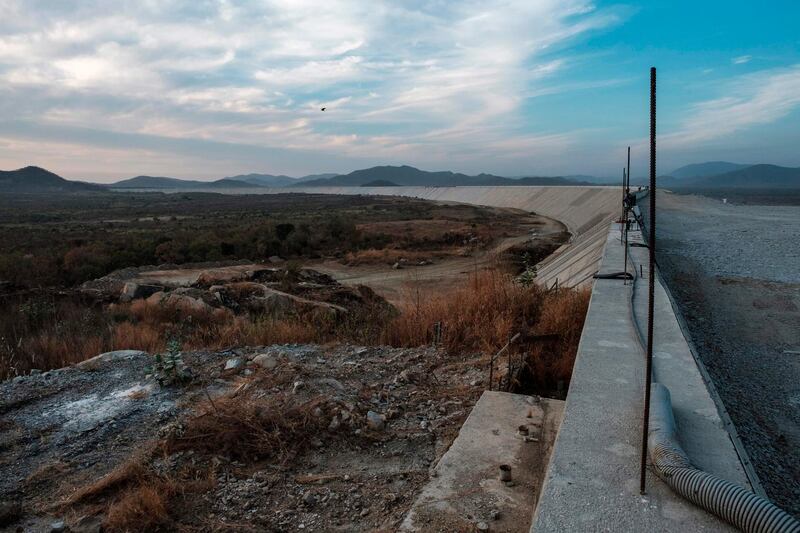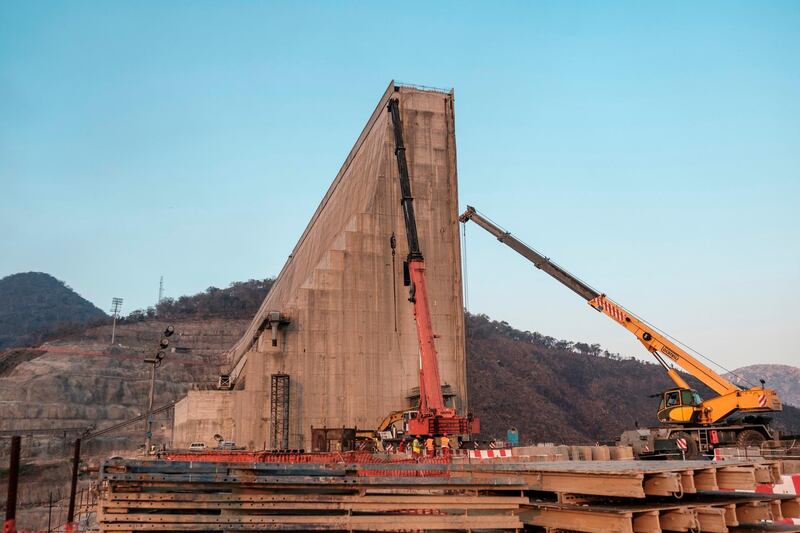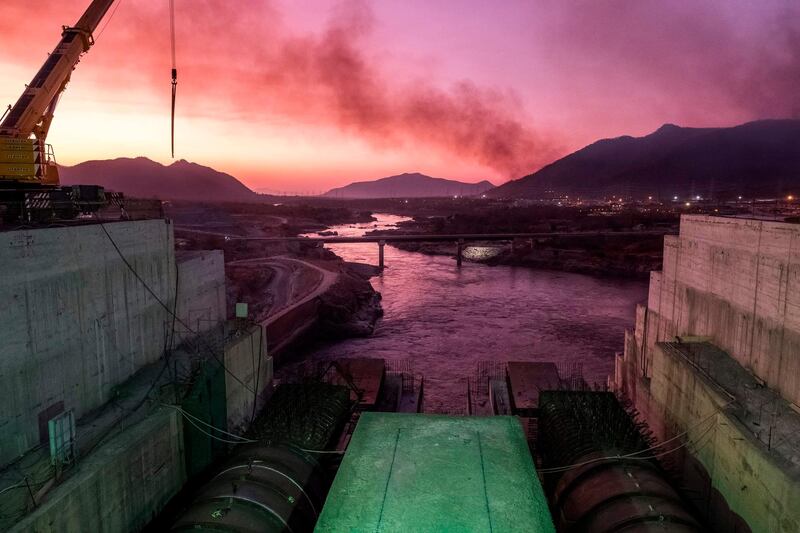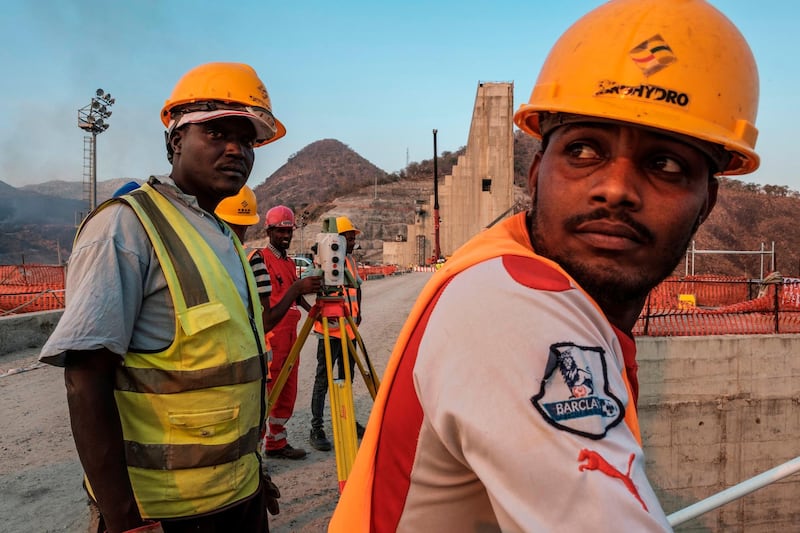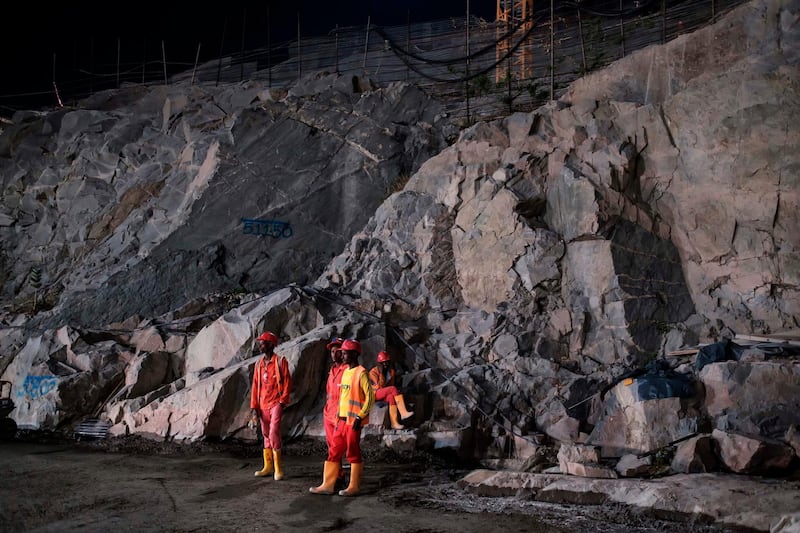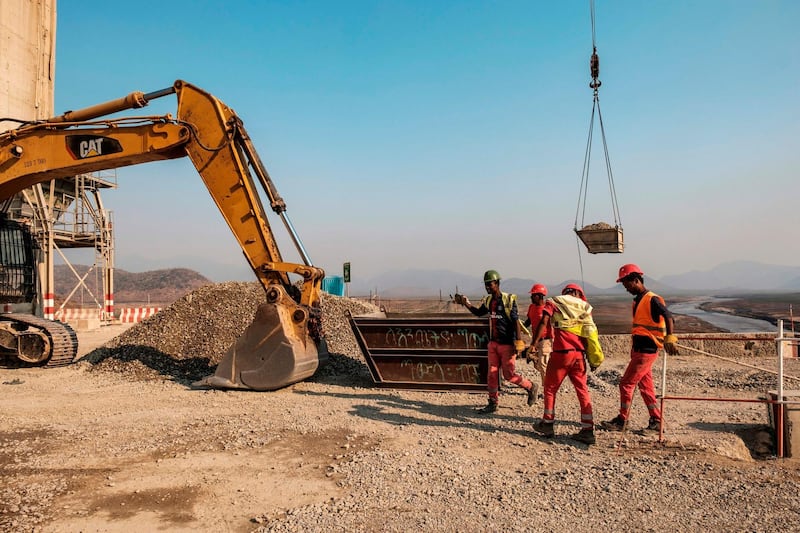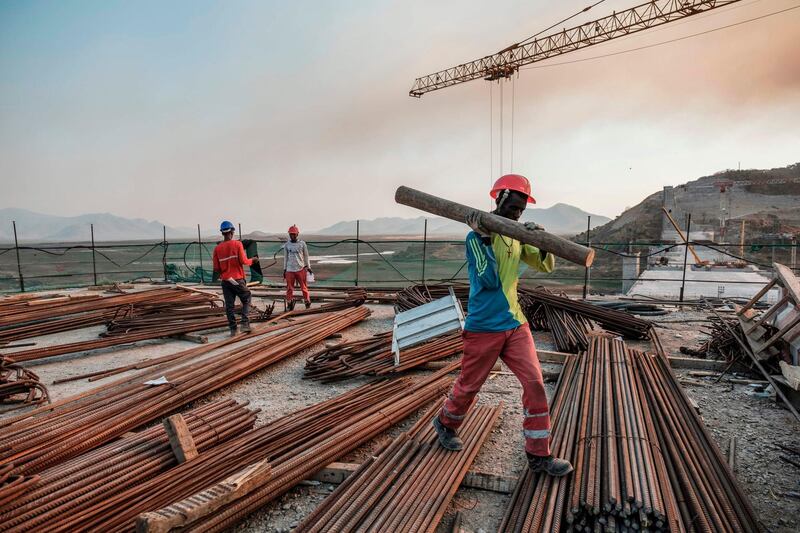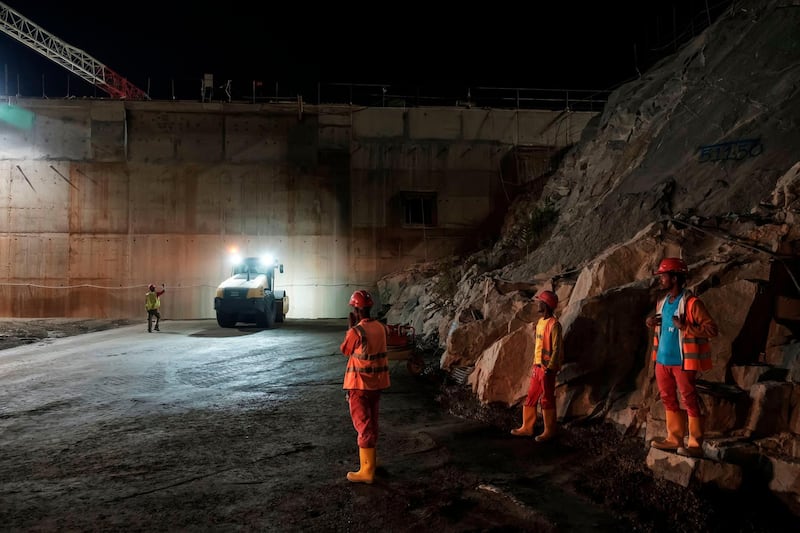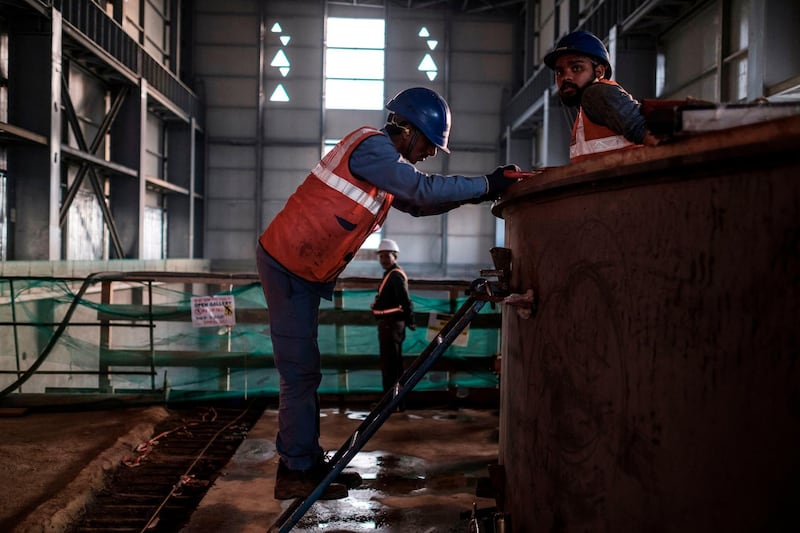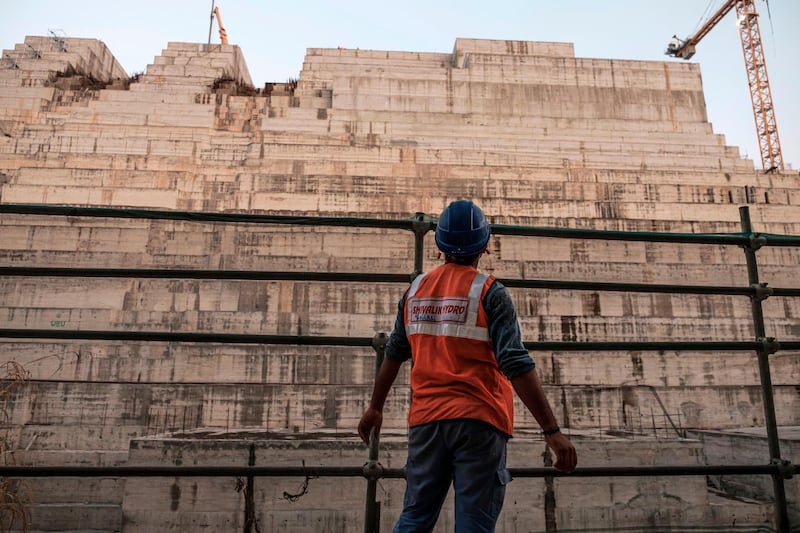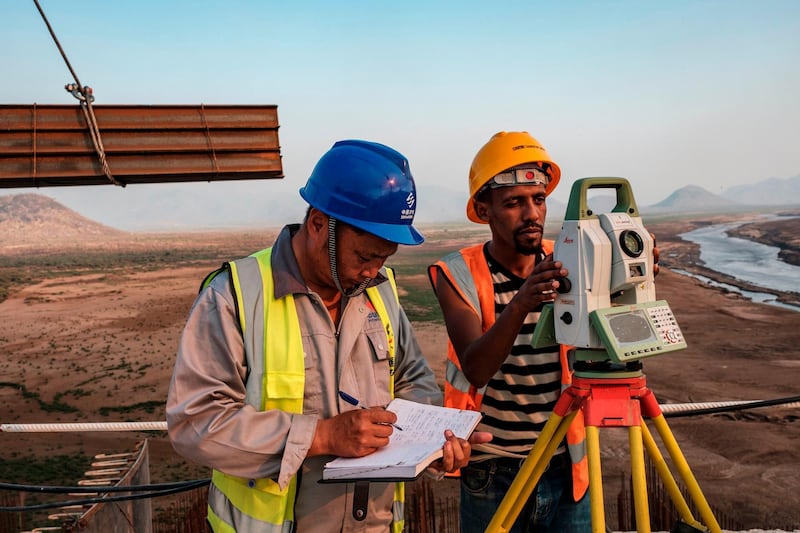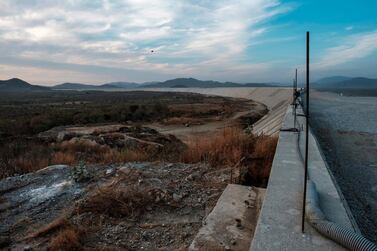Egypt and Ethiopia were locked in a rapidly escalating war of words on Sunday over a US-brokered draft agreement on the operation and filling of a giant Nile dam being built by Addis Ababa.
Late on Saturday, Ethiopia dismissed the agreement already initialled by Egypt, saying negotiations were not finished.
It also took exception to a US assertion that the $4 billion (Dh14.69bn) dam should not be operated and filled before an agreement is reached with downstream nations Egypt and Sudan.
Egypt struck back on Sunday, accusing Ethiopia of deliberately staying away from last week’s talks in Washington, which were supposed to be the last round in a series that began four months ago, to obstruct progress towards an accord.
Sudan, Egypt and Ethiopia had been expected to sign the agreement on the Grand Ethiopian Renaissance Dam last week in Washington.
The three nations have for five years been locked in negotiations over the dam, which Ethiopia is building near its border with Sudan.
Egypt fears the development could significantly reduce its share of the Nile, the main water source for its population of 100 million, threatening its economy and food security.
But despite the US announcement that the talks had finished, Ethiopia said on Saturday that the text of the agreement “is not the outcome of the negotiations on the technical and legal discussion of the three countries”.
It said it stayed away from the Washington talks to complete internal deliberations on the issue.
Ethiopia has also taken exception to the suggestion by US Treasury Secretary Steven Mnuchin that it should not start testing or filling the dam before it had reached an agreement with the downstream nations.
“Ethiopia does not accept the characterisation that the negotiation on the guidelines and rules on the first filling and annual operation of the dam is completed,” Ethiopia’s foreign and water ministries said.
Egypt's foreign and irrigation ministries responded: “It is curious that the Ethiopian statement speaks about the need for more time to look into this vital issue after more than five years of complete engagement in intense negotiations that dealt with all aspects and details of the issue."
Egypt said Ethiopia would be in breach of international law and norms if it started operating the dam and filling the massive water reservoir behind it before an agreement was reached with Egypt and Sudan.
Cairo on Sunday said the draft accord presented by the Americans was a “fair and balanced” solution to the issue and that protected the interests of all three nations.
“Ethiopia’s ownership of the dam does not give it licence to violate the rules of international law and the encroachment on the rights and interests of nations that share with it the Nile river,” it said.
The latest comments by Ethiopia and Egypt, which depends on the Nile for more than 90 per cent of its water needs, have fuelled the tense standoff between them over the dam.
Egypt, the most populous Arab nation, has maintained throughout years of negotiations with Ethiopia and Sudan that it appreciated the dam’s importance to Ethiopia’s development.
But Cairo has also sought an agreement that would mitigate the effects of a lesser share of the river’s water.
The dam has become a symbol of national pride to Addis Ababa and a centrepiece in its development and ambition to become Africa’s largest power exporter, which would match its growing political influence in East Africa.
Sudan is not likely to be significantly affected by the dam, did not sign the US draft agreement.
The Egyptian government has refrained from threatening military action to halt the Dam’s construction.
But top officials, including President Abdel Fattah El Sisi, have repeatedly referred to the country’s share of the river’s water as an existential issue and warned Cairo would never accept a bad deal imposed by Addis Ababa.
On Saturday, it made a thinly veiled threat to Ethiopia, saying it would use “all means available” to defend the rights of the Egyptian people.
Ethiopia’s Prime Minister, Abiy Ahmed, has said his country was prepared to defend the dam against any attack and would easily mobilise a million people to fight.
